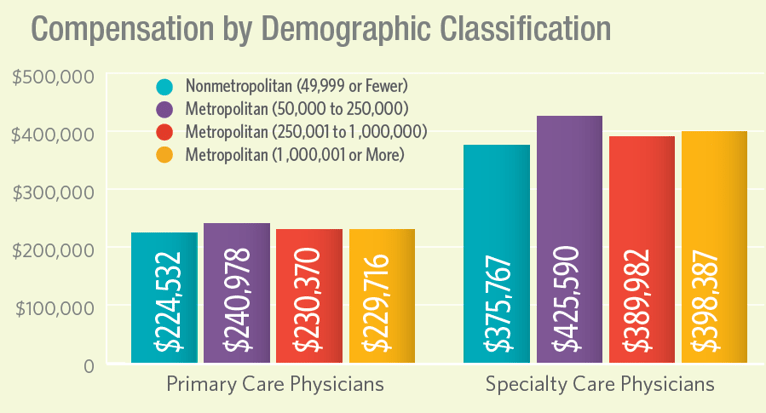One in five patients with a distressing diagnosis will seek a second opinion. If they were diagnosed with cancer, more than half will seek one. While the second-opinion phenomenon is not new, the way its delivered and the impact it may have on your practice is.
That's because your patient looking for a second opinion is not just driving across town to visit your golf buddy anymore. New clinics and a plethora of established hospitals – some overseas – now offer second-opinion services.
These are especially popular for people living a distance from a medical university or research hospital, which may put the most lucrative type of practice at risk. The Medical Group Management Association found that physicians working in towns with fewer than a quarter of a million people earned the most, and that patient satisfaction has gone up for this group since 2012.

To make it easier for patients to get in touch with a second expert, some employers have contracted with clinics and hospitals that offer the service. Insurance companies sometimes require one, especially if the recommendation is surgery.
As a testament to the medical profession, the diagnosis and the recommended treatment don't often change much. For example, Cleveland Clinic has been offering a second-opinion service for over a decade, during which it has grown up to 25% a year. They charge up to $745 for a diagnosis and pathology review, but they disagree with the original diagnosis only 11% of the time.
So the risk isn't about medical malpractice. The risk is losing patients, and while a certain amount of churn may be inevitable, any physician attempting to expand his practice may consider doing whatever it takes to retain your patient from the moment they meet you.
Mind and Body
To accomplish that, raising your staff’s awareness of your patient’s psychological well-being might significantly deepen your relationship, since most will have a mental health problem as well as the physical health issue that brought them to you.
The National Institutes of Health estimate that one out of five American adults has a diagnosable mental disorder. Out of those 43 million people, 10 million have a mental illness severe enough to diminish their quality of life and impact their ability to function.
\More distressingly, one in five children under eighteen also has a debilitating mental disorder. As a point of reference, we read about childhood obesity all the time, but that affects a mere 0.2% of this same population.
Taking this into consideration may distinguish you from the competition – and enable you to provide treatment options that give you the edge in the second-diagnosis game.
All the evidence suggests that psychological factors play a major role in heart disease, arthritis and other common illnesses, and that mind-body techniques can improve recovery. Conveniently, these techniques alleviate the symptoms associated with both illness and treatment, so while the medicine does its work your patient feels better and might regain her health sooner.
You and your staff have a psychological impact upon a patient the moment they first contact you. If they’re coming to you for a second opinion, they’re probably already in a heightened state and your psychological impact may be even more pronounced.
So remember that even pre-verbal infants can distinguish between different tones of voice, and they express their understanding in the most basic, consumerist way possible: they avoid harsh people and gravitate towards nice ones. Your patients will react to your tone of voice just as surely – and to maximize that gravitational force, the best method may be to think about your own family.
Channeling Grandma
Recent studies have concluded that teenagers who have a close relationship with at least one grandparent are happier and have higher self-esteem. They have the fewest emotional problems, and if that means they are more mentally healthy, then they’re probably better equipped to deal with physical health problems.
If you and your staff can connect with your inner grandma (two-thirds of the befriended grandparents in the study were grandmas) you may create the level of rapport that assures patient retention. Remember her voice, remember her cadence, and do your best to copy her.
Your patients may respond to your grandmotherly mind-body questions more elaborately than ever before. All sorts of mental health issues have burst into the mainstream, and not just on tabloid-style daytime talk shows.

Employers have become far more tolerant of their employee’s mental health needs, and employees enduring a condition have become more frank about their needs. Most of those 43 million American adults with a mental illness work, and while most of them still keep their situation secret from their employer, that seems to be changing.
If it’s working in the workplace, introducing it into your practice may make your clinic seem more likely to produce positive results. How often is a patient asked if they need special accommodations for a mental health issue? In fact, the decades of accumulated experience behind this trend may make it one of the most cost-effective ways to win the second-diagnosis game.
Of course, if the goal is to retain patients, then making it easy for them to pay you may also be a critical component of the second-diagnosis game. Many clinics receive up to 26% of their revenue in the form of checks from patients. We can help protect your inner grandma by guranteeing the revenue in those checks, and we can provide you with tools to make payments even easier for your patients. After thirty years providing services to medical clinics like yours, we've bundled together a set of services tailored to please your patients, increase your revenue, and to dramatically mitigate your risk.
Taking care of your patient's mental health? Take care of yours, too.



